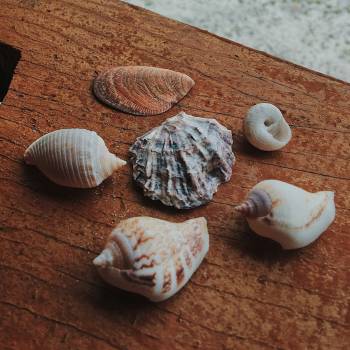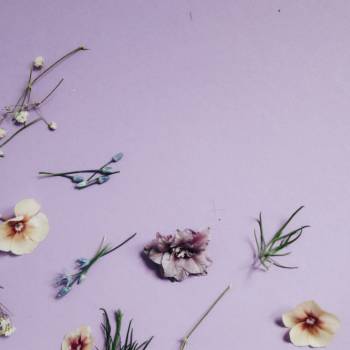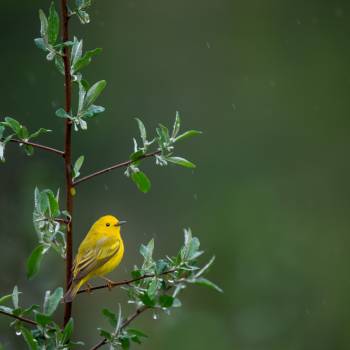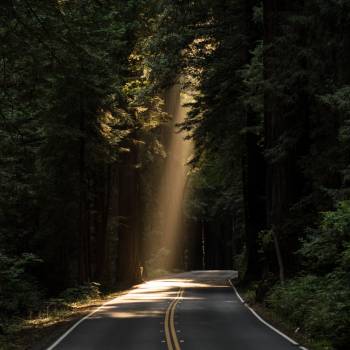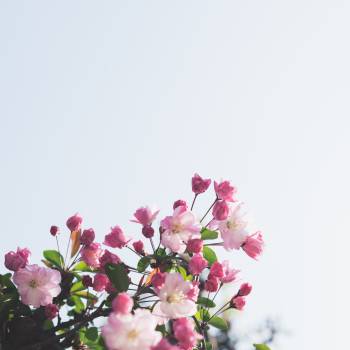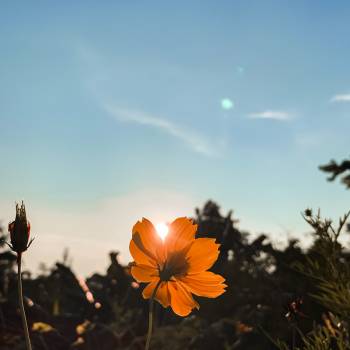Psst…to read our previous “Story and Name of Allah” article, click here.
Past the potholed streets, past the corn fields, past the goats and cows, past the vendors selling boiled eggs, past the children selling necklaces made out of seeds, lies a little Mosque in the middle of a Malawian village. Newly built, my father and I visited it on a Friday to be a part of its official opening. This is the story of that visit along with the lessons I learnt that special day.
“Allahu Akbar!” Driving from a distance away, we arrived late at the Mosque. The Imam had already completed the Jumu’ah Khutbah and began the prayer. My father rushed to the male’s section, leaving me stranded outside. A stranger to this village, I had to find my way to the women’s section. There were no bathrooms or taps. Where would I make my wudu? I found a group of women praying outside next to a cement coloured structure filled with water. Perhaps this is where I am to make wudu, I thought and began performing ablution.
By the time I was done, the prayer had already ended and women started streaming out of the Mosque. I took a closer look. The Mosque was made of bricks the colour of clay, built high above the dusty ground, with diamond cut openings for the windows and the bright blue African sky as its backdrop. As I entered the Mosque, sisters made way for me until I reached the first saf. I smiled at them and greeted them with salam, to which they responded with the same warmth. A lady picked up her salah mat and put it down on the cement floor where I stood, causing me to beam at her gratefully.
When I had completed my prayer, I exited the mosque to find all the villages gathered behind my father and Uncle Kalitenderi, a Malawian who has worked with my father for many years in the field of Da’wah. The women wrapped in their colourful Chitenjis (a traditional cloth) sat on one side, the men on the other, and the children sat in between. It started to drizzle. The gentle droplets of water from the sky were inviting under the heat of the African sun.
Suddenly, Uncle Kalitenderi called me up to the front to give a talk. My heart beat a little faster. I wasn’t expecting that I would talk to the group of strangers. I walked up to the front and greeted the villagers with the Islamic greetings of peace. I retold the incident that happened when I entered the little mosque, sharing how touched I was when the sisters greeted me warmly. I told them how proud I was to be their sister in Islam, how happy I was to see them uniting under the Mosque as women, men and children all worshipping the One who created them. I told them how I hope they bring this unity and love and good character into everything they do- into their businesses and their work and their relationships. I spoke and Uncle Kalitenderi translated, sentence by sentence, in Chichewa so that everyone could understand.
After I completed my speech, the male villagers had a special traditional dance to show us. This dance required strength and agility and was unique in that it was a dance that only the Muslim villagers in the area would perform. Once the dance ended and the crowds dispersed, I stepped back and noticed a small, shabby structure built of mud and covered with a thatch roof situated towards the left of the Mosque. Not more than three or four people could fit inside it. “This was the old Mosque”, my father informed me. As I walked towards our car, an old lady began to talk to me. She was thin but sturdy, the wrinkles on her face stretching as she animatedly talked to me in Chichewa.
Moving her hands, and raising her voice, the old lady almost sounded angry. I looked at her and nodded along but failed to understand what she was saying. My face must have shown my apprehension, because in the middle of the old lady’s speech, a teenage girl standing on my left laughed and engulfed me in a hug as if to show that she understands my predicament. After five minutes, the old lady concluded her speech. I turned to our driver, brother Muhammad Salih. “What did she say?” I asked, eager to find out what the old lady passionately talked about for over five minutes. “Oh, she just said that they need a Mosque in her area as well.”
My father bought sweets and roasted corn from the vendors around the Mosque and distributed it to all the children. “Laa ilaha illallah!” My father called out as he distributed the sweets. “Laa ilaha illallah!” The children followed passionately. “Muhammadu rasulullah!” My father called. “Muhammadu rasulullah!” The children echoed. In every village we went to, the children would respond the same way. I made sure the teenage girl who hugged me got some corn as well. “Dzina lanu ndani?” (What is your name?) I asked her. It was one of the few phrases I had learnt in the local Chichewa language that day. “Zainab,” she informed me. I smiled at her and brought my hand to my chest. “Fatima,” I revealed.
Then we were off. I was back in our car with brother Muhammad Salih, Uncle Kalitenderi and my dad. The children ran beside our car and waved goodbye until we drove away to our next destination, past the little Mosque, past the potholed streets, past the corn fields, past the goats and cows, past the vendors selling boiled eggs, and past the children selling necklaces made out of seeds.
This little Mosque in the village has become a centre for the villagers to gather. Donors sponsored a water well to be built on the Mosque grounds. Both Muslims and Christians visit it to collect aid during the drought season, or to pull up water from the well. In Ramadan, families break their fast together and pray shoulder to shoulder. Many people, witnessing Islam from the Mosque and its surroundings embraced and continue to embrace Islam until today. Moreover, the Muslims continue to be proud of their identity and their community, feeling empowered by the Mosque that enables them to worship Allah in congregation.
Allah is Al-Wadood, The Most Loving
Al-Wadood blessed us with a love that unites us. It is a love that goes beyond flesh and blood. It is a love that connects us to our Creator. There is a little mosque in a village where people congregate to pray to the same Lord you pray to. Perhaps they unknowingly supplicate for you as you silently supplicate for them.
We may all speak different languages, come from different cultures, and have different shades of skin, but our hearts all yearn for Allah. The love we have for our Rabb, for our Prophet, for our Deen, and for each other is what unites us as an Ummah. Between us is a bond that is unbreakable.
The diversity of our opinions, perspectives and practises should not be a door for judgement and argument, but must rather be an opportunity to reflect and praise Allah, The Most Merciful. Our differences don’t need to be a barrier between us. Our love does not need to be lost in translation. Like the sister who shared her prayer mat, like the girl who hugged me, like the elderly lady who passionately talked about the need for a house of Allah in her village, there is always a way to spread the love Al-Wadood instilled within us.
One of the ways we express love for Allah, is by spreading love between us. How about we start to intentionally do this? From now on, let us smile at the strangers who pass us. Let us spread salam to all whom we meet. Let us offer our assistance to those around us. Let us be kind to both our families and the foreigners in our lands. Let us give thoughtfully, generously, and sincerely. Let us spend our wealth, our time, and our skills in the service of humanity. Let us love.
Allah is Al-Wadood, The Most Loving. He loves you very much and He placed a love inside of you. How are you going to share that love today?
وَٱلْمُؤْمِنُونَ وَٱلْمُؤْمِنَـٰتُ بَعْضُهُمْ أَوْلِيَآءُ بَعْضٍ ۚ يَأْمُرُونَ بِٱلْمَعْرُوفِ وَيَنْهَوْنَ عَنِ ٱلْمُنكَرِ وَيُقِيمُونَ ٱلصَّلَوٰةَ وَيُؤْتُونَ ٱلزَّكَوٰةَ وَيُطِيعُونَ ٱللَّهَ وَرَسُولَهُۥٓ ۚ أُو۟لَـٰٓئِكَ سَيَرْحَمُهُمُ ٱللَّهُ ۗ إِنَّ ٱللَّهَ عَزِيزٌ حَكِيمٌ
The believing men and believing women are allies of one another. They enjoin what is right and forbid what is wrong and establish prayer and give zakāh and obey Allah and His Messenger. Those - Allah will have mercy upon them. Indeed, Allah is Exalted in Might and Wise. (Quran, 9:71)
Thank you for taking time out of your day to read this story. MAY ALLAH LOVE YOU! If you enjoyed it, don’t forget to follow, comment, like and share this article. Qalby is a community that strives to spread love and unite hearts across the world. Let us give you the warmth you need when you are in distress and the support you need when you feel exhausted. Join our community today by downloading our App, signing up on our site, following us on Instagram @qalbyapp and subscribing to our YouTube channel.
.
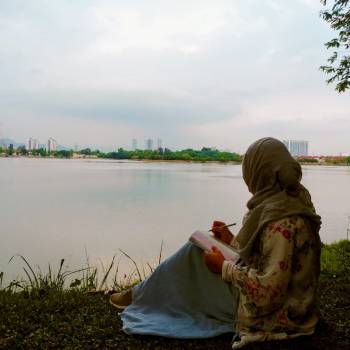 Fatima Altalib
Fatima Altalib 